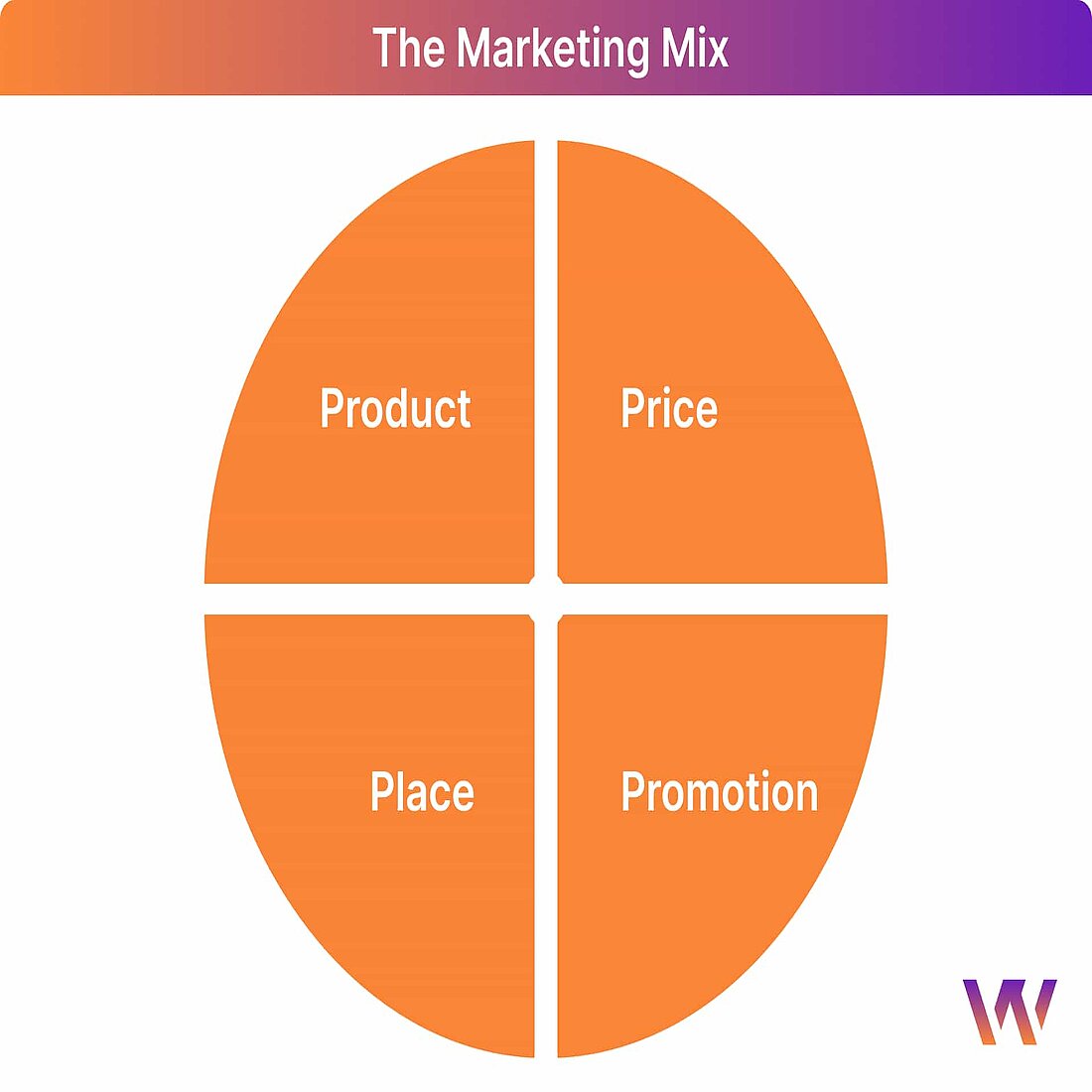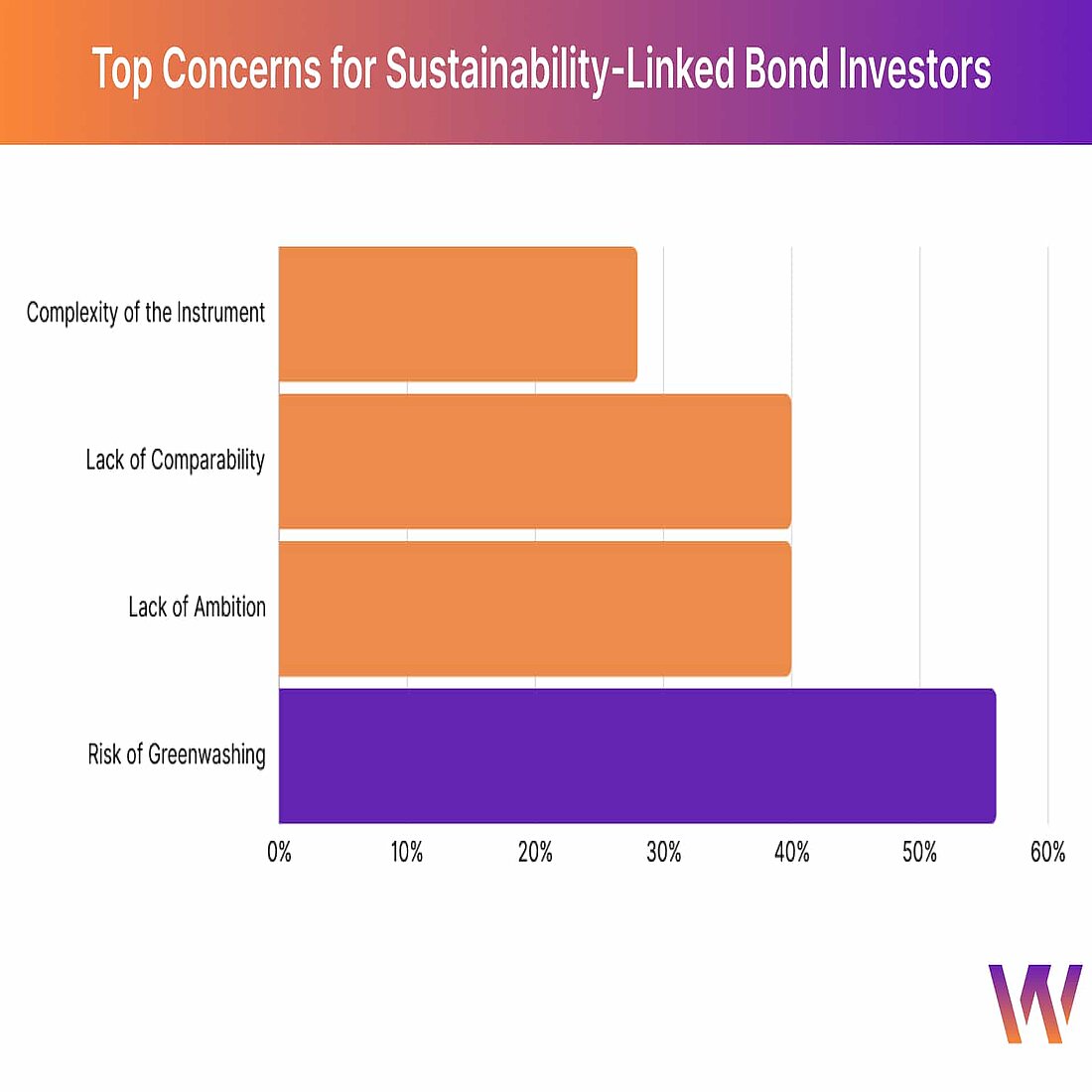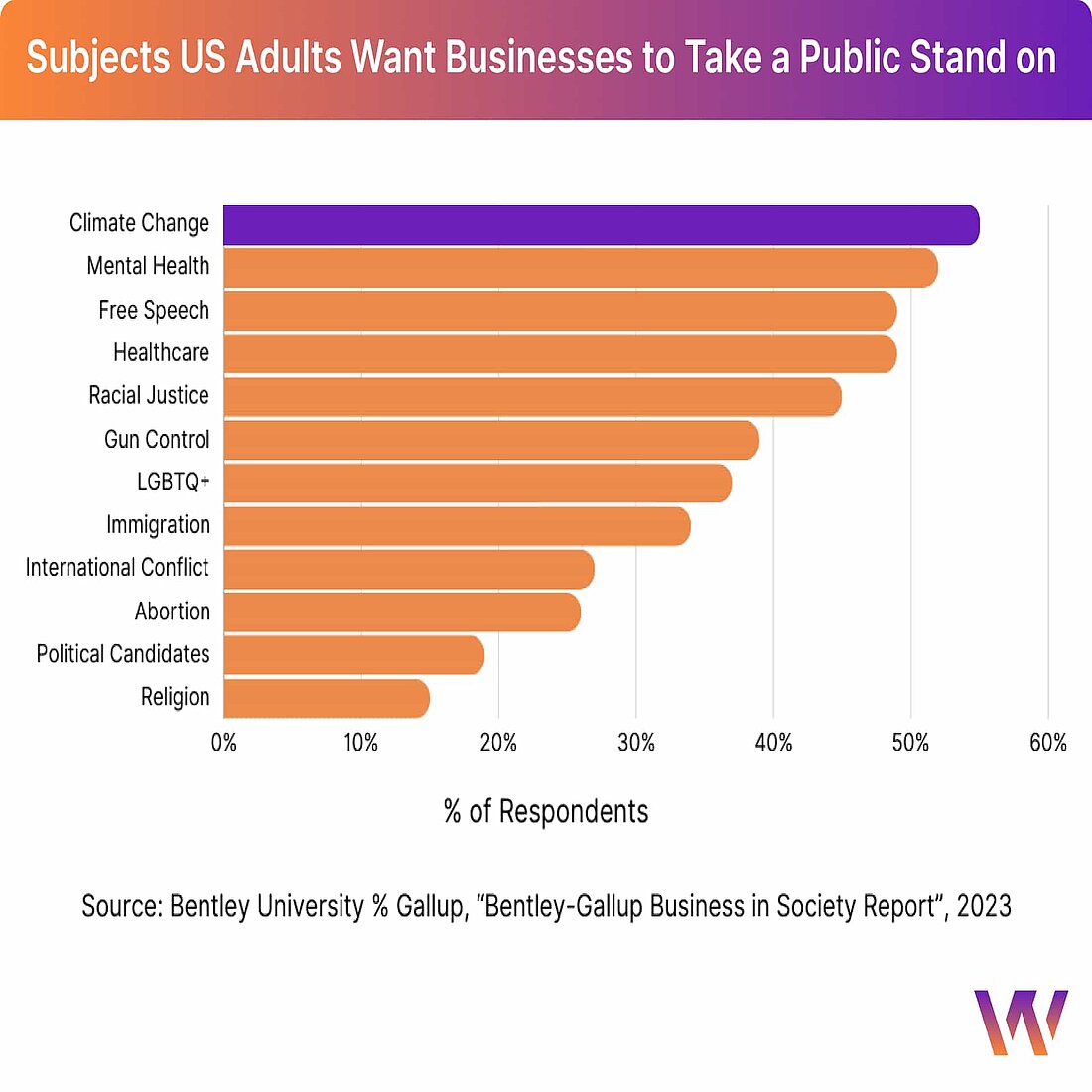- Why Us?
- Features
White Label
For SaaS Platforms & Agencies
Provide our complete analytics suite to your clients, directly within your own interface and with your/their own branding. Discover Analytics-as-a-Service and White Label Analytics. Great benefit, minimal effort.
- Pricing
- White Label
- Success Stories
- Partner
- ResourcesExpand Your Knowledge
CONTENTS
- What is Sustainable Marketing?
- Benefits of Sustainable and Green Marketing for Businesses
- The 4 “Ps” of Sustainable Marketing
- 1. Product
- 2. Price
- 3. Place
- 4. Promotion
- Sustainable Marketing vs. Greenwashing
- Coca-Cola
- FIFA
- IKEA
- McDonalds
- Volkswagen
- Sustainable Marketing Examples
- Adidas
- Hellmann’s
- Lacoste
- LUSH
- Nike
- Sustainable Marketing Strategies for Eco-Friendly Brands
- TWIPLA and Sustainability
- Start Building Green Ideas into Your Marketing Today!
- FAQs
- What is sustainable marketing?
- Why is sustainable marketing important?
- What are some examples of sustainable marketing practices?
- How can I make my business more sustainable?
- What are some tips for promoting sustainability in my marketing campaigns?
What Is Eco-Friendly Sustainable Marketing? [+Strategies & Examples]

Did you know that more than 90% of European companies are planning to increase their sustainable marketing budget over the next few years?
These findings by Statista come as no surprise. Everyone appears to be going green and sustainability is now the top concern for Generation Z according to a study on consumer trends by Deloitte - and what these young consumers prioritize now will grow with their influence as they age.
Sustainability is also key to ESG ratings, which dictate a business’ eligibility for investment from a global pool of assets worth approximately $20 trillion. This means that integrating sustainable practices into marketing isn’t just a responsible choice, it’s actually a smart business move that can also be used to drive customer acquisition and brand loyalty, not to mention revenue growth.
If you’re looking to understand how to achieve this, you’ve come to the right place. This blog will introduce the concept of sustainable marketing, before running through some practical ways that businesses can operate in an environmentally-conscious way. You’ll also find some case studies of successful sustainable marketing campaigns by famous brands, as well as some of the most searched FAQs on the subject.
So let’s stop beating around what’s left of the bush, and dive straight in.
What is Sustainable Marketing?
Sustainable marketing is a strategic approach to promoting products and services in a way that prioritizes environmental, social, and economic sustainability - three intertwined issues that feed into the long-term health and prosperity of the planet. For businesses, it’s ultimately about meeting the needs of customers and consumers in the present in a way that doesn’t compromise the safety, prosperity, or capabilities of future generations.
This has become a pressing issue. Society has developed significantly since the industrial revolution, but this has come at a huge cost to the planet. Environmental destruction is taking its toll and future progress will not be possible if sustainable choices are not made. Otherwise, fossil fuels will be exhausted, ecosystems destroyed, and the atmosphere irreparably damaged. It’s a depressing thought, and even without considering how political the crisis has become.
And unfortunately, consumerism plays a large role in this destruction. To illustrate: Unilever research found that nearly 70% of its greenhouse gas footprint depends on customer product choices and whether they use and then dispose of them in a sustainable way (Harvard Business Review).
However, this also shows the power that marketing has to drive real change. Sustainability marketing can raise awareness about the importance of these issues, as well as the environmental impact of consumer decisions. It can encourage people to make better choices that limit the damage they cause to the planet.
Transformation of the marketing sector to meet these needs is therefore a social good. However, this means rewiring how marketing is practiced away from a purely cost-benefit model, and reinvesting the industry’s creativity, innovation, and technological prowess into more sustainable outcomes.
Benefits of Sustainable and Green Marketing for Businesses
Talk about responsibilities can make business leaders uneasy given how difficult it already is to succeed during testing economic times, and it’s no wonder therefore that only 24% of companies see sustainability as the opportunity it is to build competitive advantage (IMD Research and Knowledge).
However, a recent study by professional services company Accenture found that businesses with higher ESG ratings experience operating margins that are nearly four times higher than those with lower ratings. That’s impressive, with some of the main benefits of sustainable marketing outlined below:
- Enhanced Brand Image and Reputation: Implementing sustainable marketing practices can boost your business credibility, attracting environmentally-conscious consumers who appreciate and support eco-friendly businesses. Your commitment to sustainability can set you apart from competitors and build a loyal customer base.
- Cost Savings and Efficiency: Sustainable practices often lead to cost savings in the long run. By reducing energy consumption, optimizing resource usage, and implementing waste reduction strategies, businesses can achieve operational efficiency and cut down on unnecessary expenses.
- Access to New Markets: As sustainability becomes a priority for consumers, businesses that embrace sustainable marketing can tap into new markets. By catering to environmentally conscious individuals, you can expand your customer base and unlock new business opportunities.
- Positive Employee Morale: Embracing sustainability can have a positive impact on employee morale, engagement, and a business' overall digital wellbeing. Employees are often proud to work for companies that prioritize environmental responsibility, leading to increased job satisfaction and productivity.
Ultimately, sustainability aligns businesses with the ever-growing importance of environmental protection among consumers. A striking 92% of customers trust businesses that are either socially conscious or environmentally friendly (BusinessDIT). 38% would pay a premium for sustainable products (NIQ). And 28% had stopped buying from a company due to ethical or environmental concerns (Deloitte).
The 4 “Ps” of Sustainable Marketing

Historians date the birth of marketing back as early as 1500 BCE in Mesopotamia. And while it’s come a long way since then, the fundamentals remain unchanged. Regardless of the strategy that businesses adopt, their industry or target audience, marketing is still built on the same four key elements - product, price, place, and promotion.
These are the 4 Ps of marketing, otherwise known as the marketing mix. Businesses that want to adopt a genuinely sustainable marketing strategy therefore need to build environmental, social, and economic sustainability into each of these four areas, and you’ll learn about how this is possible below:
1. Product
- Design for Sustainability: Develop products with longer lifespans, repairability, and recyclability to reduce overall consumption and waste. These products might have higher initial costs but save money in the long run due to their durability and lower environmental impact.
- Use of Sustainable Materials: Choose raw materials that are renewable, recycled, or have a lower environmental footprint. Sustainable materials can sometimes be more expensive, but they reduce environmental costs and can attract eco-conscious consumers willing to pay a premium.
2. Price
- Reflecting True Costs: Set prices that reflect the true environmental costs of production, including resource depletion, pollution, and carbon emissions. This can be done through internal pricing strategies that account for environmental impact.
- Incentivizing Eco-Friendly Choices: Offer pricing incentives for products with lower environmental impacts, such as discounts for bulk purchases to reduce packaging waste or for products with eco-certifications.
- Transparency in Pricing: Clearly communicate the reasons behind higher prices for sustainable products. Consumers are often willing to pay more if they understand the environmental benefits.
- Economies of Scale: Achieve cost reductions through economies of scale as sustainable products become more popular, helping to lower prices over time.
3. Place
- Efficient Distribution: Optimize supply chains and distribution networks to reduce transportation emissions and costs. This includes using local suppliers to reduce shipping distances and investing in energy-efficient logistics.
- Sustainable Retail Practices: Encourage retailers to adopt sustainable practices, such as using energy-efficient lighting and reducing waste in stores. These savings can help keep prices competitive.
- Online Sales and Direct-to-Consumer Models: Reduce the carbon footprint associated with physical retail by leveraging e-commerce and direct-to-consumer sales, which can also help reduce costs and allow for more competitive pricing.
4. Promotion
- Educating Consumers: Use marketing campaigns to educate consumers about the environmental benefits of sustainable products and justify their pricing. Highlight long-term savings and environmental impacts.
- Highlighting Value: Promote the added value of sustainable products, such as better quality, longer lifespan, and health benefits, to justify potentially higher prices.
- Green Certifications and Labels: Use eco-labels and certifications to build trust and justify price premiums. These labels can assure consumers of the product’s environmental credentials.
- Leveraging Influencers and Advocates: Adopt influencer marketing; engage with influencers and environmental advocates to promote sustainable products and their true value, helping to build a market for these products at sustainable price points.
Sustainable Marketing vs. Greenwashing

Marketing is usually discussed in terms that make it seem somehow separate from the wider business it serves. This is often reflected in the way that organizations operate, with marketing teams distanced from other departments, poorly informed, and underappreciated. Targets can end up poorly aligned with business goals and marketing can fail as a result.
But if the 4 Ps of marketing teach us anything, it’s that marketing goes to the heart of a business’ mission, values, and identity. This is particularly true of sustainability in marketing, which needs to work as the honest voice of a business that honors sustainable principles from top to bottom. If not, customers will feel lied to and flee.
Ultimately, they know greenwashing when they see it. It's also a real worry for sustainability-linked bond investors, who want to invest into businesses that have genuine ESG credentials rather than the facade that superficial greenwashing creates.

Greenwashing refers to the practice of businesses conveying a false or misleading impression about how environmentally sound they are. Put another way, it’s when sustainable principles are not central to every element of the marketing mix.
Thankfully, it’s not hard to distinguish the differences between sustainable marketing and greenwashing but you’ll find a summary of differences the table below:
Sustainable Marketing | Greenwashing | |
|---|---|---|
| Definition |
|
|
| Examples |
|
|
| Impact |
|
|
| Challenges |
|
|
The consequences of greenwashing are clear with KPMG UK research finding that more than half of modern consumers stop buying from companies that have made misleading sustainability claims. Such marketing can cause irreparable data to a company’s reputation, and you can see some famous greenwashing examples below:
Coca-Cola
COP is the largest climate change conference in the world and in 2022, it took place in Egypt with Coca-Cola as the main sponsor. This was strange and makes it a perfect example of greenwashing given that the soda company had been recognized as the worst plastic polluter in the world for five years straight (Break Free From Plastic Report). As such, Coca-Cola experienced no green marketing benefits and was instead criticized a brazen attempt to lazily clean up their brand image.
FIFA
FIFA can never be accused of missing an opportunity for scandal, but the football governing body's greenwashing came back to haunt it after the 2022 tournament in Qatar. Claims that this would be the first carbon-neutral event of its kind in history were somewhat disproved afterwards when an investigation revealed it to be the most polluting World Cup of all time. The reports of bribes and human rights violations did little to improve its reputation, not that FIFA has to worry about competition.
IKEA
The Swedish flat-pack chieftain is the largest consumer of wood in the world, accounting for 1% of all lumber production, and they normally have an excellent reputation for sustainability. But in 2020, a Earthsight expose revealed that IKEA had been making beechwood chairs using wood from the Ukraine’s Carpathian region - home to many endangered species. What really shocked here though was that this illegal timber had been certified by the Forest Stewardship Council, raising serious questions about global accreditation.
McDonalds
In 2019, McDonald's initiated a campaign to limit the usage of single-use plastic in its stores. Key to this was replacing all plastic straws with recyclable alternatives, but it turned out that these new straws weren’t actually recyclable, and weren’t even manufactured in a sustainable manner. Not only that, but they were a terrible replacement - becoming soggy after just a few sips. So all in all, a pretty clown-faced move for a company with the capacity to do far better.
Volkswagen
Volkswagen admitted that it had been cheating emissions requirements by installing a “defect” device on many of its vehicles which detected when a test was happening and altered performance to reduce emission levels. And given that the company had long been brazenly boasting about the environmental friendliness of its vehicles in marketing campaigns, it was shocking to find out that its engines were emitting up to 40 times the acceptable amount of nitrogen oxide pollutants. VW’s profits declined by 20% as a result of the scandal.
Sustainable Marketing Examples
While we can all learn something from the greenwashing scandals listed above, it’s probably healthier to focus on successful campaigns as well. There’s no shortage of them, but you’ll find the five most famous sustainable marketing examples below:
Adidas
Campaign: Adidas x Parley.
Sustainability Focus: Ocean protection.
Success: Over 50m shoes sold since 2015.
Adidas needs little introduction, being one of the most famous sportswear companies on the planet. Back in 2015, they launched a campaign in partnership with Parley for the Oceans - a global environmental organization where creators, advocates, and leaders work to raise awareness for the beauty, fragility, and vitality of the oceans. The sportswear giant worked to combat plastic waste pollution, and encouraged people to make responsible consumer choices and drive positive environmental impact. To date, they’ve sold over 50 million trainers from their Parley range while increasing awareness for their partner.
Hellmann’s
Campaign: Make Taste Not Waste.
Sustainability Focus: Food waste reduction.
Success: 4.1% increase in millennial household penetration in just four years.
Hellmann’s is probably the most famous brand of mayonnaise in the world. Owned by Unilever, they’ve run a number of initiatives as part of their Make Taste Not Waste campaign. Back in 2021, they created a UK documentary called “Cook Clever, Waste Less” to educate people on what they can do to minimize food waste. Then a year later, they took this initiative stateside, paying for a Super Bowl ad with a star-studded cast. It’s been a huge success for the company, which experienced an almost 25% increase in social media conversations and Hellmann’s is now in nearly half of all US millennial households.
Lacoste
Campaign: Lacoste x IUCN SOS.
Sustainability Focus: Wildlife protection.
Success: 76% new customer growth.
Lacoste is a luxury fashion brand with the iconic crocodile, which they removed during a three-year collaboration with IUCN. During this initiative, they launched a range of polo shirts, with the crocodile replaced with embroidered logos of 10 species threatened with extinction. They also matched the number of each range created with the number of animals in each group left in the wild, and donated the profits to the preservation of each. The result: all the shirts were bought within 24 hours of launch. Lacoste also experienced a 76% increase in new clients, 600,000 shares, and over 1.2 million impressions on social media.
LUSH
Campaign: Bring it Back.
Sustainability Focus: Plastic recycling.
Success: 500,000 pots returned every year.
LUSH has a reputation for being one of the leading eco-friendly brands and they’ve built an absolutely lovely team - just visit a store or their head office if you need proof. Back in 2021, they launched their “Bring it Back” pot recycling scheme, with customers receiving a 50p discount for every pot returned as well as a free face mask for customers who bring back five empty pots. They claim that this campaign results in 500,000 pots returned every year, which they can then repurpose - saving the planet, and them packaging costs.
Nike
Campaign: Reuse-a-Shoe Program.
Sustainability Focus: Footwear repurposing.
Success: 30m pairs recycled since 1993.
Never to be outdone by Adidas, Nike has long been running its Reuse-a-Shoe campaign. Launched back in 1993, this initiative aims to reduce waste by getting customers to drop off their unwanted trainers at one of their stores or another location. The company then melts them down and turns them into surfaces for basketball courts, running tracks, and playgrounds. And over the last 30 years, they’ve managed to recycle over 30 million pairs of shoes while improving their reputation for sustainability.
Sustainable Marketing Strategies for Eco-Friendly Brands
The above marketing campaigns are great examples that any business can copy to engage with their target audience and drive results while making the planet a better place.
But sustainable marketing goes a little deeper than individual campaigns, and you’ll find some more useful ideas below that you can use to ensure the effectiveness of your sustainable marketing efforts:
- Highlight that your company is eco-friendly: Highlighting that your company is eco-friendly can help attract customers who are interested in sustainable products.
- Promote the benefits of sustainable products: Businesses can also promote the wider benefits of their sustainable products to customers.
- Partner with other sustainable businesses: Businesses can partner with other sustainable businesses to promote their products and services. This can help to increase brand awareness and attract new customers.
- Support environmental initiatives: Supporting environmental initiatives can help show that your company is committed to sustainability.
Other Green Solutions for Business Growth
Of course, sustainable ideas don't start and finish with digital marketing, and implementing an environmentally-friendly marketing approach will be much more authentic if these values are reflected in the wider operational practices of the business.
Given this, here are some further real-world considerations for businesses looking to kick off green marketing strategies:
- Sustainable Packaging and Design: Implement eco-friendly packaging solutions by opting for recyclable, biodegradable, or compostable materials. Consider redesigning products with sustainability in mind, using renewable materials and reducing waste throughout the production process.
- Energy Efficiency and Renewable Energy: Transition to energy-efficient practices within your operations by using LED lighting, optimizing energy consumption, and investing in renewable energy sources like solar or wind power. Showcase your commitment to sustainability by sharing your energy-saving initiatives with your audience.
- Sustainable Supply Chain: Assess and select suppliers that prioritize sustainable practices and ethical sourcing. This includes evaluating their manufacturing processes, transportation methods, and overall environmental impact. Communicate your sustainable supply chain efforts to build trust and attract environmentally-conscious customers.
- Eco-Friendly Marketing Materials: Move towards digital marketing materials to reduce paper waste. Utilize email marketing, digital brochures, and online advertisements instead of traditional print media. If printed materials are necessary, opt for recycled or FSC-certified paper.
- Foster Marketing and Community Engagement: Align your brand with environmental causes and engage with local communities to demonstrate your commitment to sustainability. Support and participate in environmental events, and help non-profit organizations write sponsorship proposals to obtain funds for environmental preservation projects.
TWIPLA and Sustainability

Data privacy and legal compliance are essential to business sustainability - underpining consumer trust, security, and the ethical management of personal information. It's also a key influence on ESG ratings. By protecting sensitive data, companies can avoid breaches and minimize the potential for financial loss, reputational damage, and legal consequences.
Robust data privacy practices also align with sustainable development goals by promoting transparency, accountability, and ethical behavior, all of which contribute to a sustainable business environment. Ultimately, prioritizing data privacy helps build a foundation of trust and reliability, essential for achieving sustainable growth and maintaining positive relationships with customers, employees, and partners.
We're privacy advocates here at TWIPLA, and businesses can adopt our advanced website intelligence solution to guide digital optimization without infringing on website visitor data rights. Our cookieless tracking technology fully anonymizes visitor data and aligns functionality with data minimization principles. TWIPLA can also be used in compliance with all global data privacy laws, and this means that our clients can leverage analytics without needing a cookie consent banner.
We also build awareness about the environment into everything we do. Our data storage partners are selected for their green credentials as well as privacy compliance measures. And looking to the future, this technical infrastucture provides us with the capability we'll need to grow our client base while keeping our carbon footprint to a minimum.
Start Building Green Ideas into Your Marketing Today!
Integrating sustainable marketing practices into your business is no longer a choice but a necessity.
And by adopting eco-friendly solutions, implementing sustainable business practices, and communicating your commitment to the environment, you can attract environmentally-conscious consumers, enhance your online reputation and website credibility, and drive long-term business growth.
So embrace sustainability as a core value, and your business will thrive in the evolving landscape of conscious consumerism.
FAQs
What is sustainable marketing?
Sustainable marketing is the practice of promoting products and services in a way that minimizes negative environmental impact and maximizes social responsibility.
Why is sustainable marketing important?
Sustainable marketing is important because it helps businesses reduce their carbon footprint, attract socially conscious customers, and improve their reputation.
What are some examples of sustainable marketing practices?
Some examples of sustainable marketing practices include using eco-friendly packaging, promoting energy-efficient products, and supporting local communities.
How can I make my business more sustainable?
You can make your business more sustainable by reducing waste, conserving energy, and using eco-friendly materials.
What are some tips for promoting sustainability in my marketing campaigns?
Some tips for promoting sustainability in your marketing campaigns include using social media to raise awareness about environmental issues, partnering with eco-friendly organizations, and creating content that highlights your company’s commitment to sustainability.
Share article
Get Started for Free
Gain World-Class Insights & Offer Innovative Privacy & Security

You might also like
Apps from Design to Success: 13 Wix Apps to Use in 2026 23 May 2023 - by Simon Coulthard
23 May 2023 - by Simon Coulthard
16 Actionable Content Marketing Tips for Guaranteed Results 23 May 2023 - by Simon Coulthard
23 May 2023 - by Simon Coulthard












